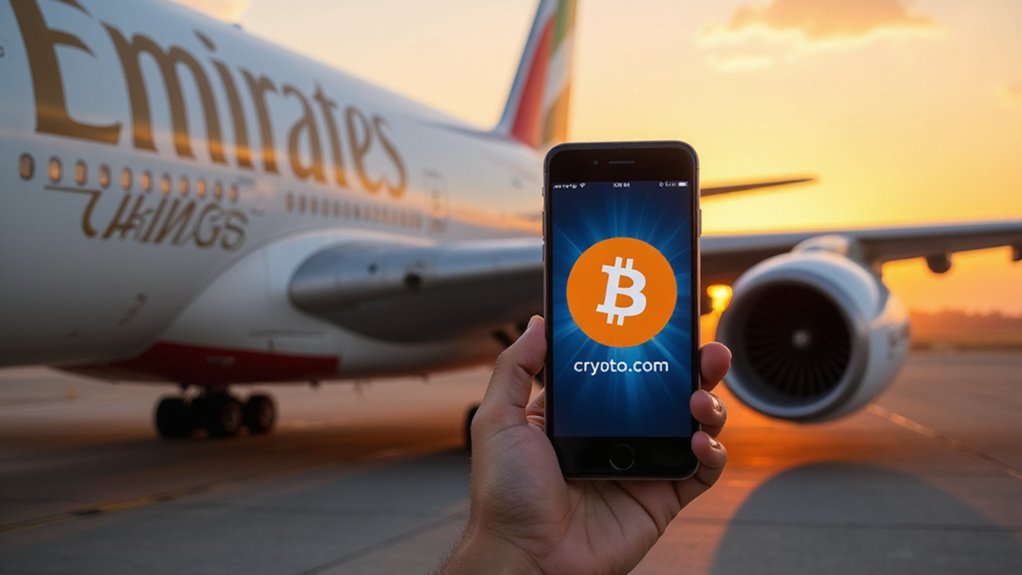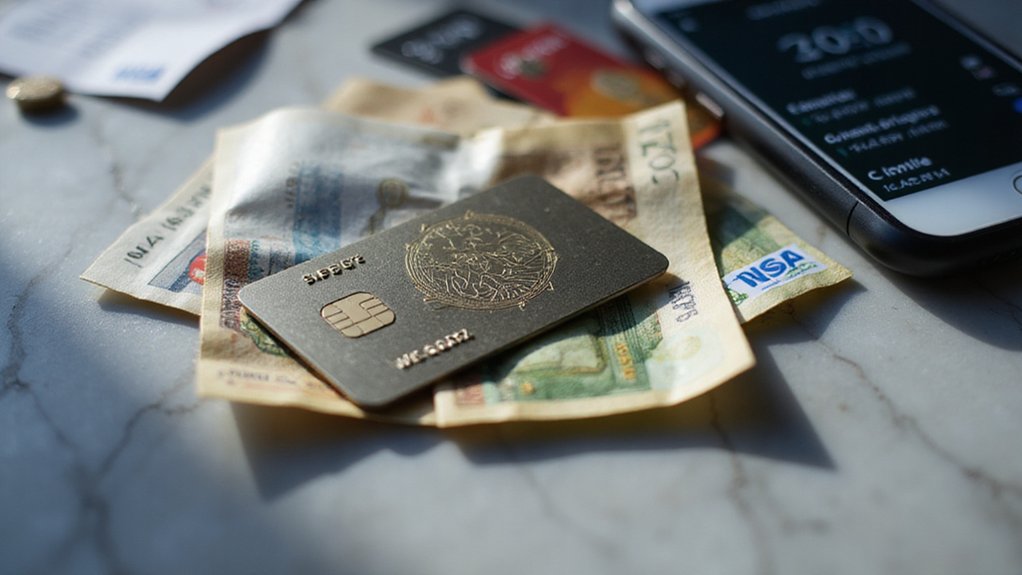Emirates has officially crossed the crypto Rubicon, signing a memorandum of understanding with Crypto.com that will integrate cryptocurrency payments into the airline’s booking system—a move that positions the Dubai-based carrier as possibly the most significant mainstream adopter of digital currencies in the aviation sector to date.
The 2025 agreement, formalized in the presence of Emirates Chairman Sheikh Ahmed bin Saeed Al Maktoum, represents more than corporate posturing; it’s a calculated bet on the financial preferences of younger, tech-savvy travelers who apparently find traditional payment methods insufficiently avant-garde.
The technical architecture reveals pragmatic sophistication. Through Crypto.com Pay, customers will transact using Bitcoin, Ethereum, and potentially stablecoins, with instant conversion to UAE Dirhams at point of sale.
Emirates, displaying admirable risk management acumen, will maintain zero cryptocurrency exposure on its balance sheet—a decision that suggests management understands the difference between embracing innovation and courting volatility-induced bankruptcy.
Implementation follows a measured trajectory, with rollout anticipated in late 2025 or 2026, beginning with pilot programs before expanding globally. This phased approach acknowledges the regulatory complexities inherent in cryptocurrency adoption across multiple jurisdictions (a revitalizing realistic timeline in an industry notorious for overpromising digital transformations).
The strategic context proves compelling. Emirates joins Latvia’s airBaltic in accepting crypto payments, but as one of the world’s top ten carriers, its adoption carries exponentially greater significance for mainstream cryptocurrency legitimacy.
Chief Commercial Officer Adnan Kazim frames the initiative as alignment with customer trends and innovation leadership—corporate speak that, for once, appears substantively accurate.
The UAE’s regulatory environment facilitates this experiment, with Dubai positioning itself as a cryptocurrency hub through business-friendly legislation and regulatory clarity.
This governmental support transforms what might elsewhere be a compliance nightmare into a strategic advantage, potentially attracting millions of crypto holders worldwide to Emirates’ ecosystem.
The inclusion of stablecoins in the payment mix particularly demonstrates Emirates’ understanding of digital currency infrastructure, as these assets provide stability in the volatile cryptocurrency market through their design to maintain consistent value by pegging to external assets, making them ideal for everyday transactions.
Whether this proves prescient positioning or expensive pandering to digital currency enthusiasts remains unclear.
However, Emirates’ approach—embracing technological innovation while maintaining financial prudence through immediate currency conversion—suggests management recognizes that successful crypto integration requires balancing progressive customer service with traditional risk management principles.









